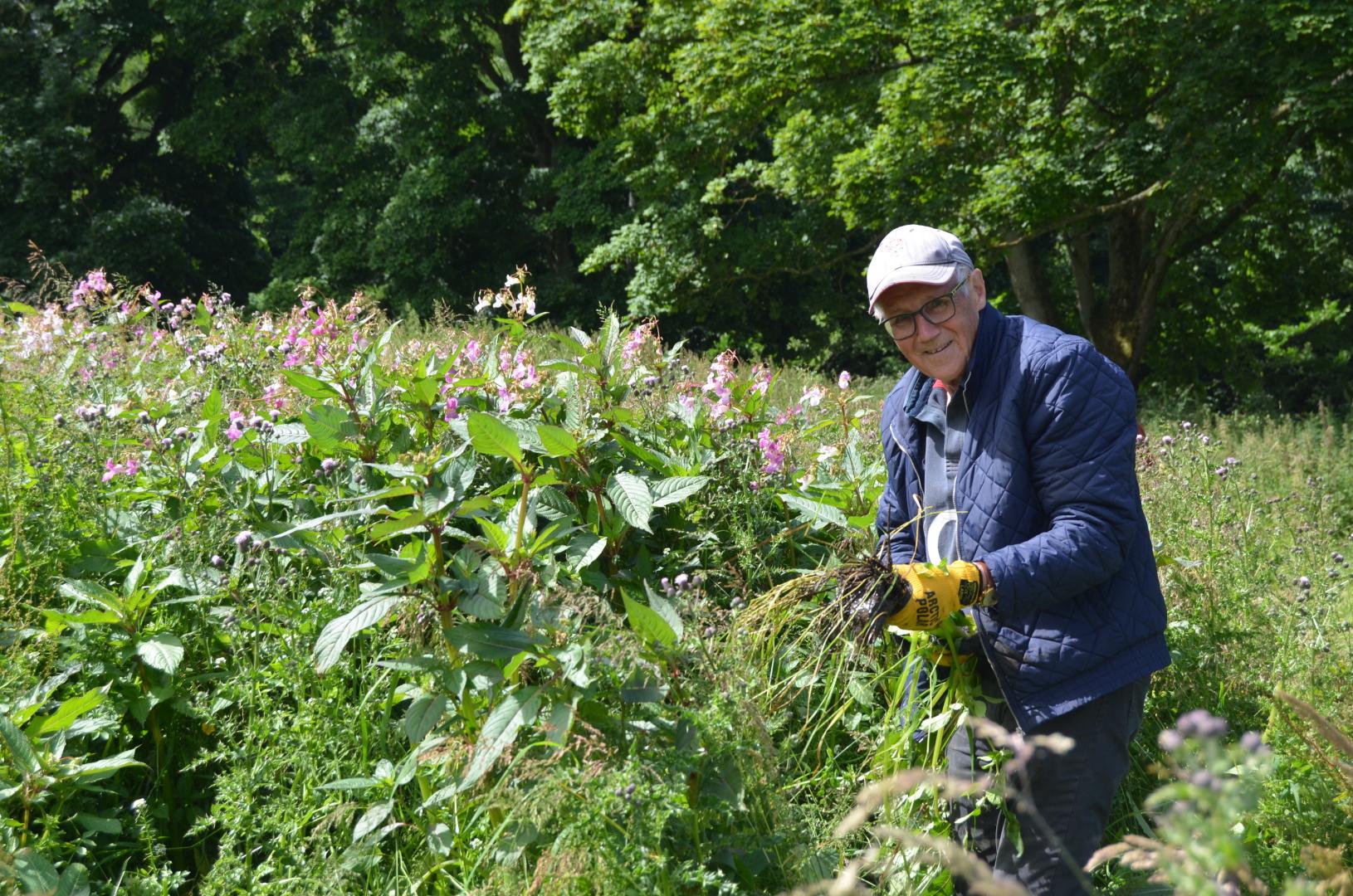A BARNARD Castle botanist has created a map tracking the trail of an alien invader plant which will help volunteers to stem the spread.
For the past few months, Dr Dick Warren has been paying close attention to some of the smaller streams and becks that flow into the River Tees near the Demesnes.
He was on the look out for the invasive plant, introduced to England by the Victorians. It grows rapidly and can reach up to three metres in height, shading out and killing off native vegetation.
It spreads by exploding seeds up to 10 metres. To stop the spread the plant needs to be uprooted while it is in flower. With this in mind, Dr Warren tracked known clusters of balsam.
He said: “I have been interested in Himalayan Balsam for several years, mainly because of the work Roger Peat and the Workers Group have been doing to get rid of it.
“I found a cluster in the stream near the hay meadow on the upper Demesnes. This stream is very fast flowing so the seeds can travel quite far.
“Seed from that site has been washed downstream to Flax Mill, where it is in the doldrums and stalls, taking root. There is a great mass – it is absolutely chock-a-block.
“The plants are easy to pick out when they have flowered, but difficult to spot before then; you can walk straight past them because they are in the long grass. If you are not looking for them you won’t see them.”
Dr Warren identified four balsam clusters and drew a handy map for volunteers to use. He also indicated other areas to investigate where seeds could be “trapped” .
He added: “The stream continues and there is another potential area there because the water is travelling slowly it gets washed in the reeds.”
Aided by Dr Warren’s balsam map, eight members of the volunteer Workers Group spent several hours last month in a “balsam bashing session” .
Plants are uprooted and the root balls chopped off. They can then be left to decompose.
Geoff King said: “The real problem at the moment is the larger plants are in flower, but smaller ones will not be ready to pull for another two to three weeks and that means coming back.
“We could do with more people getting involved to help.”






